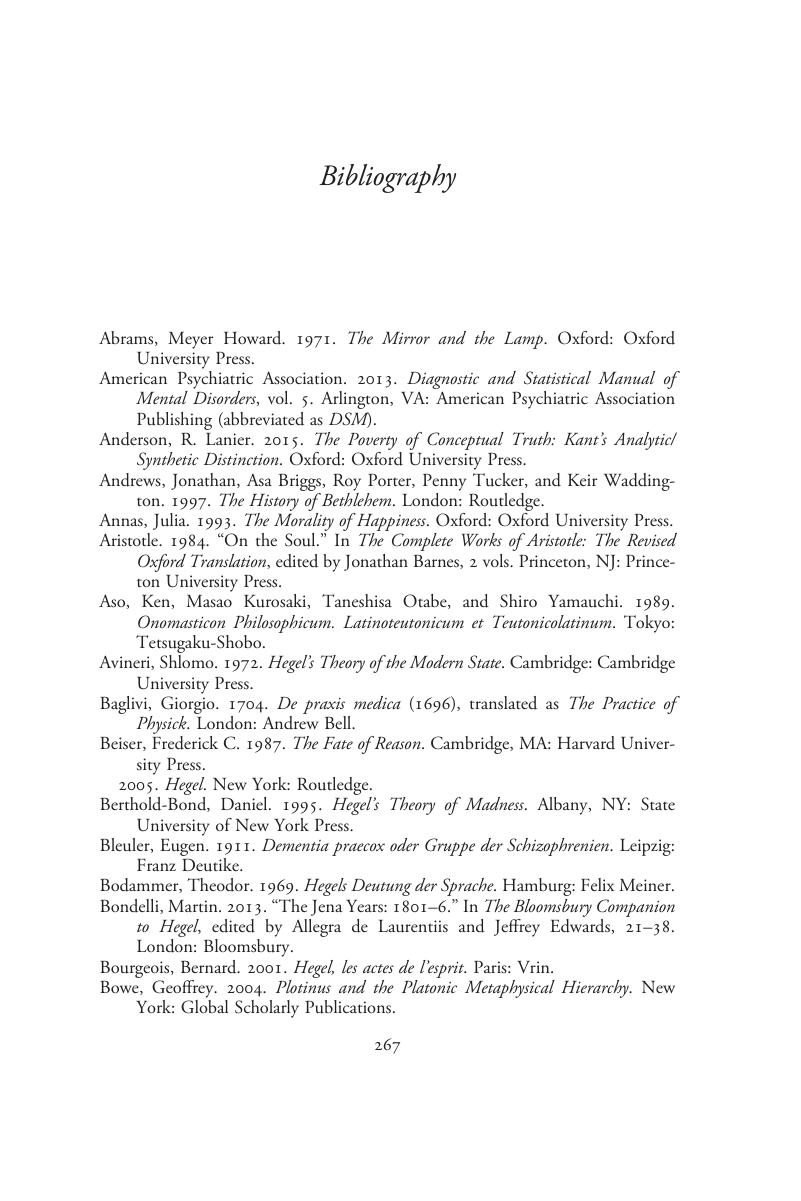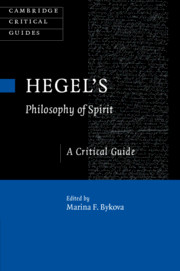Book contents
- Hegel’s Philosophy of Spirit
- Cambridge Critical Guides
- Hegel’s Philosophy of Spirit
- Copyright page
- Contents
- Contributors
- Acknowledgments
- Abbreviations
- Introduction
- Part I Philosophy of Spirit and Hegel’s Philosophical System
- Part II Philosophy of Subjective Spirit
- Part III Philosophy of Objective Spirit
- Part IV Philosophy of Absolute Spirit
- Bibliography
- Index
- Cambridge Critical Guides
- References
Bibliography
Published online by Cambridge University Press: 24 June 2019
- Hegel’s Philosophy of Spirit
- Cambridge Critical Guides
- Hegel’s Philosophy of Spirit
- Copyright page
- Contents
- Contributors
- Acknowledgments
- Abbreviations
- Introduction
- Part I Philosophy of Spirit and Hegel’s Philosophical System
- Part II Philosophy of Subjective Spirit
- Part III Philosophy of Objective Spirit
- Part IV Philosophy of Absolute Spirit
- Bibliography
- Index
- Cambridge Critical Guides
- References
Summary

- Type
- Chapter
- Information
- Hegel's Philosophy of SpiritA Critical Guide, pp. 267 - 284Publisher: Cambridge University PressPrint publication year: 2019

